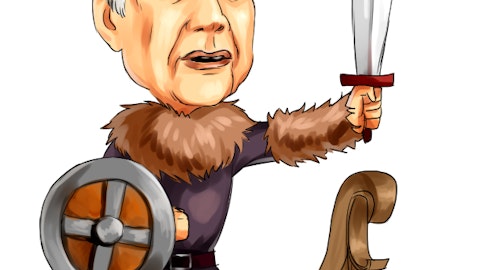6. Interesting Reads
“Facebook is now making it easier for you to order food from your favorite restaurants directly within its app, without having to navigate away to a delivery service or restaurant’s own app or website. In the main Facebook navigation on both web and mobile, a new option called “Order Food” is rolling out to select users. Indicated by a colorful hamburger icon on desktop and a blue-and-white hamburger icon on mobile, the option lets Facebook users place food pickup and delivery orders from restaurants using Delivery.com or Slice.”
“If you are trying to lose weight and otherwise improve your health, you may already be mindful about what you eat during the day. You might skip breakfast. At lunch, you may opt for a salad with lots of veggies, no croutons and low-fat dressing — on the side, of course. Then, three o’clock hits. You’re incredibly hungry and craving candy, sweets or chips. You finally cave, eating a candy bar or other treat. By 6 p.m., you’re tearing the kitchen apart, snacking on anything you see.”
(CNN)
“If you think all sunscreens are created equal, think again. Consumer Reports has released its annual list of top sunscreens as well as a warning about the SPF number on some bottles: If you put too much faith in them, you could be putting your skin at risk. SPF, which stands for sun protection factor, measures how well a sunscreen guards against ultraviolet B (UVB) rays, the chief cause of sunburn and a contributor to skin cancer.”
“People who struggle to cope with uncertainty or the ambiguity of potential future threats may have an unusually large striatum, an area of the brain already associated with general anxiety disorder, according to research published by the American Psychological Association. “Uncertainty and ambiguity of potential future threats are central to understanding the generation of anxiety and anxiety disorders,” said lead author Justin Kim, PhD, of Dartmouth College. “Our research suggests a relationship between an individual’s ability to deal with this uncertainty and the volume of gray matter within a specific area of the brain.”
“Apple CEO Tim Cook has been seen testing a glucose monitoring device, according to a CNBC report that fuels speculation Apple is working on its own glucose monitoring technology. Cook was spotted using a glucose monitor at the new Apple Campus in Cupertino, according to a CNBC source. Sadly there are no photos but the source reportedly said that the glucose monitor was physically attached to Cook’s Apple Watch in some way.”
“Tesla has been dominating home energy headlines in recent months, what with the release of its solar roof panels and residential batteries, but Elon Musk’s company isn’t the only one getting into the home energy game. Mercedez-Benz announced on Thursday that it is teaming with solar-energy company Vivint to develop an all-in-one solar/battery setup of its own. Essentially, Mercedes is marrying its residential battery technology, which is based on the same designs that it uses for its electric and hybrid vehicles, with Vivint’s existing home solar panel business. Each system will employ 2.5 kWh cells that can be daisy-chained into a 20 kWh array, depending on the customer’s energy requirements.”
(Engadget)
“At the VR keynote at Google’s IO developer conference, a slide appeared on screen to start the morning’s presentation. Clay Bavor, head of AR and VR for Google, explained the spectrum of virtual and augmented experiences that Google is exploring. On that spectrum, there are two points: Real Reality, and Virtual Reality. And in the middle, there’s augmented reality. That’s it. The entire spectrum is called “immersive computing” by Google. Microsoft calls that same spectrum “mixed reality.” Microsoft uses “mixed reality” as a blanket term to cover its entire spectrum of upcoming hardware, from tablet-based AR to VR headsets to the Hololens. In Redmond, mixed reality is anything that blends the real world (“real reality”) and the virtual world (“virtual reality”).”
(CNET)
“If you are looking for an idea to start earning extra money for yourself, we created a list of 9 best selling products door-to-door to ease your research. For those who don’t know what door-to-door technique is, it is mostly used for campaigning, advertising, selling and marketing where one person is walking from one door to another trying to sell a specific product or a service. People who are practicing this kind of a sales approach are called traveling salesmen. It is not only the product that is important, the salesman’s approach and technique can be crucial. To know how to keep attitude and relationship with the customer is far more important than the product you are using.”
“On February 9, 2009, Facebook introduced the like button. Initially, the button was an innocent thing. It had nothing to do with hijacking the social reward systems of a user’s brain. The main intention I had was to make positivity the path of least resistance,” explains Justin Rosenstein, one of the four Facebook designers behind the button. “And I think it succeeded in its goals, but it also created large unintended negative side effects. In a way, it was too successful.” Today, most of us reach for Snapchat, Instagram, Facebook, or Twitter with one vague thought in mind: Maybe someone liked my stuff. And it’s this craving for validation, experienced by billions around the globe, that’s currently pushing platform engagement in ways that in 2009 were unimaginable. But more than that, it’s driving profits to levels that were previously impossible.”
(Vice.com)
“Every person who is spending a lot of time on the internet is looking to see what are the 10 easiest ways to make money on the internet to make the time spent worth. Today, in the digital world we live in, many people are addicted to the internet. Even people who aren’t are using it on a daily basis including elder people and children as well. Every time we go out during the day we see less and less children playing outside, not because it is dangerous, but because they are communicating through social media with each other. Even when you go for brunch or a cup of coffee with your friends, do you notice how many times you check your phone?”





